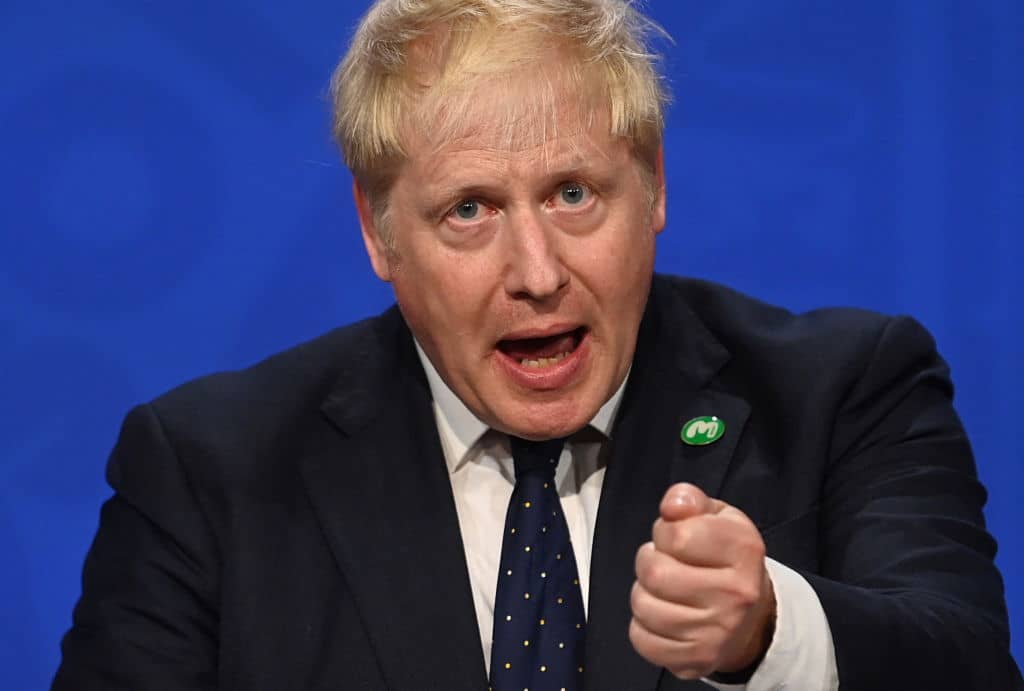After emerging relatively unscathed from his appearance in front of MPs, Boris Johnson addressed the public in a bid to sell his plan to raise taxes as part of a a new health and social care levy. Given that polling suggests broad support for the proposals, the press conference was – at least on paper – the easier outing of the two. Appearing alongside Health Secretary Sajid Javid and Chancellor Rishi Sunak, the Prime Minister tried to justify his decision to break a manifesto pledge and raise national insurance in order to clear the NHS backlog and fund social care.
Johnson said he was fully aware it meant reneging on an election promise – but said ‘a global pandemic wasn’t in our manifesto either’. All three politicians were keen to emphasise that this had been a difficult decision – and suggested they ought to be credited for coming up with a solution to a complex problem. He also argued against the idea that his taxation plans will hurt working people and help the rich – saying the most wealthy 14 per cent of the population will fund half of this tax yield. But Johnson was clear that stopping people from having to sell their homes to pay for care was something he was proud of.
Despite a series of hostile briefings, there is so far little sign of a mass revolt
Sunak pointed to how the social care settlement meant a ‘permanent new role for the government’ which thereby requires a new permanent funding source. Johnson leant more heavily on the Covid recovery as justification for the manifesto breach. He said the recovery could not be delivered by ‘cheese-pairing budgets’ and said it would be irresponsible to fund it through higher day-to-day borrowing. He also flicked to how the government is trying to put the NHS front and centre, insisting the announcement meant it is ‘there for all of us when we need it’.
Following reports of unrest between No. 10 and No. 11 and the Department of Health over the announcement, the group appearance showed how all are at pains to put on a united front. Johnson also claimed that the trio still remained keen advocates of lower taxes – it’s just that the current circumstances didn’t allow it.
But as much as Johnson insists he remains keen on lowering taxes, when pressed he would not rule out future tax rises in this parliament. All he would offer was an ’emotional commitment’ that he would like to avoid them. Meanwhile, Javid struggled to say what money would really be left for care given there is uncertainty over how much will be needed to clear the backlog.
In his last batch of questions at the press conference, the Prime Minister refused to be drawn on whether a cabinet reshuffle is on the cards. Given that the rumours of a reshuffle could be an attempt to get MPs and ministers to toe the line in tomorrow’s vote, it’s hard to reach much from this either way. However, Johnson ends the day in a better place than how it began.
Despite a series of hostile briefings, there is so far little sign of a mass revolt – instead the bigger risk lies in the longer term effects of the policy if it fails to achieve the desired aims or – as critics have warned – serves to exacerbate intergenerational unfairness.







Comments